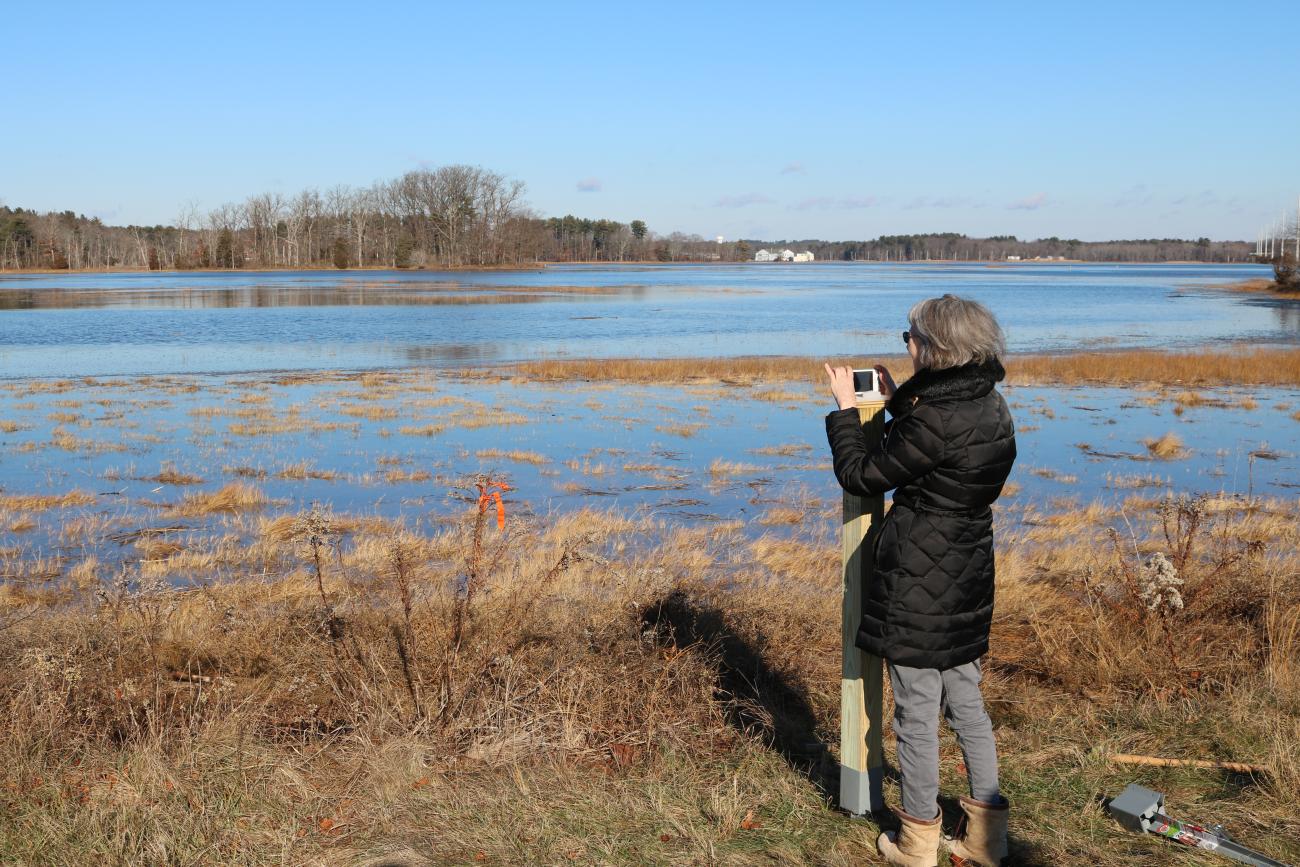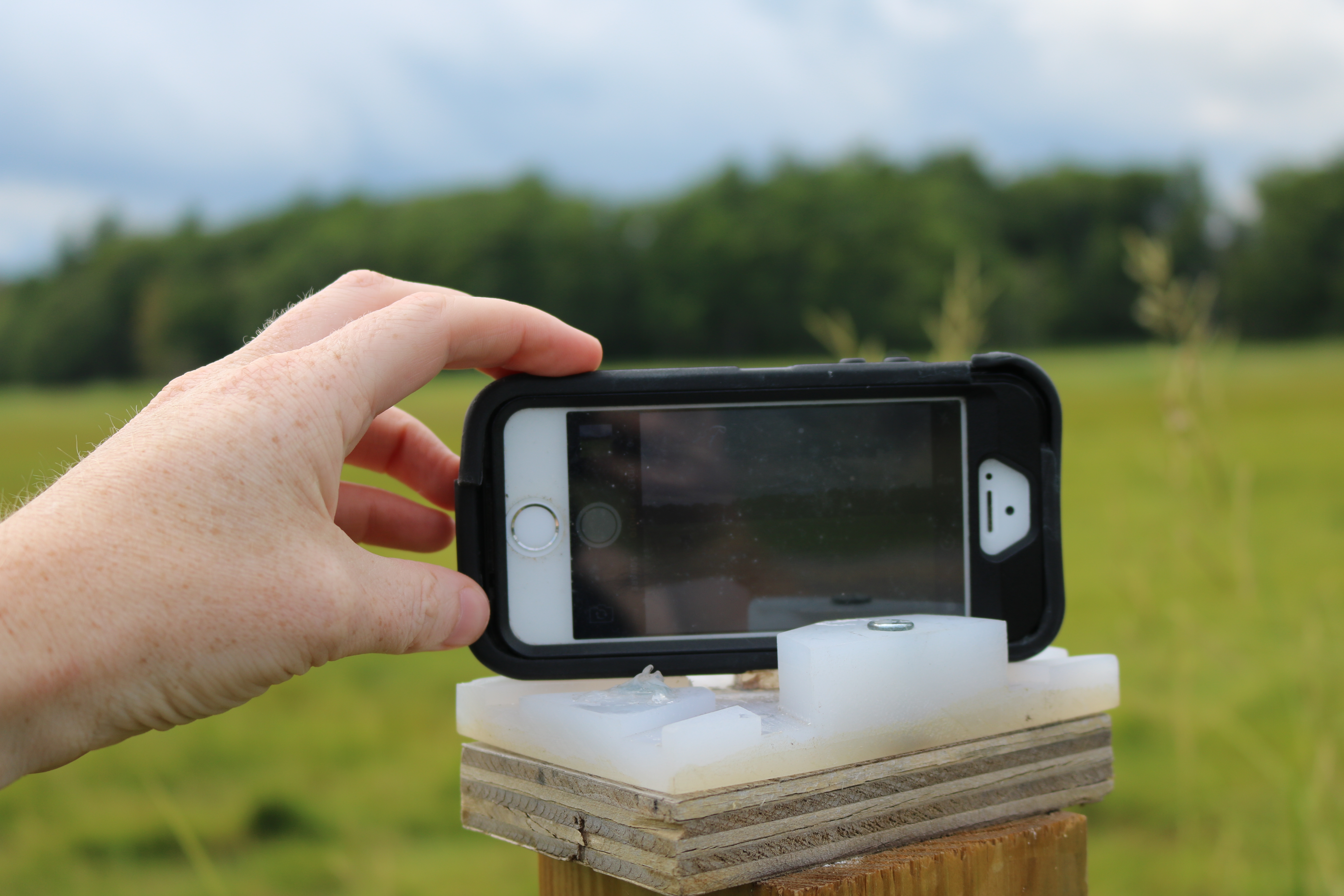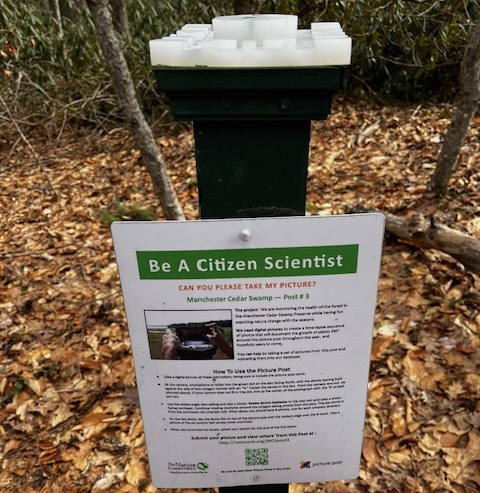What Happened to Picture Post?

Have you seen a post like this one on a property near you?
Or perhaps you work for one of the many groups that has one on their property? Maybe you are interested in the world of participatory science, and you care about the longevity and sustainability of projects that help engage the public in scientific research? For all of you - and anyone else searching for “Picture Post” on the internet - this article is for you.
What’s the Status of Picture Post?
We are writing this blog post to share that the Picture Post project has ended, the website is down, and it will not be restored. The staff at Nature Groupie have received inquiries about what might have happened to the project since the website shut down in spring, 2023. We have confirmed that all data and information on existing Picture Posts, such as geographic location and historical photos, was lost. Details on organizations hosting Picture Posts was also lost, resulting in an inability to contact groups about the project shutting down.
What is (or was) Picture Post?
Picture Post was a citizen science project that collected 360º photographs on cell phones placed on posts installed on land owned by public and non-profit conservation groups across the United States. Launched with NASA funding around 2009, the project was based at the University of New Hampshire until relocation to the University of Oklahoma’s (UO) Center for Earth Observation and Modeling in 2017. There, an unfortunate computer crash in early 2023 resulted in complete loss of all Picture Post data, websites, and Picture Post location information. UO staff contacted by Nature Groupie shared, “[Our] engineers...tried to recover them but were not able to recover any data and websites in those computer systems, including Picture Post, unfortunately. Thus, we have to abandon the service.”
What Happens Now?
How should we move forward knowing that Picture Post is no more? Here are a few suggestions. If you have other ideas, please share with us and we will add to this article:
- If you know of an organization that hosts a Picture Post, please share this article with them to help spread the word.
- For groups with existing installed Picture Posts who want to continue engaging visitors in photo documentation of natural areas, consider joining a similar effort run by Chronolog. The installation kit differs from Picture Post (Chronolog accepts a single photo taken by a cell phone rather than a series of 360º photos used in Picture Post) and organizations pay an annual rate of $200 per post for the service. More information for host organizations is available here.
- Another alternative is to establish a do-it-yourself photo monitoring station which may not provide the photo storage or viewing options of Chronolog, but which may be more within reach of small organizations. See this fact sheet from New Hampshire Sea Grant to learn how to build your own.
- If you don’t plan to convert your post, we recommend removing it to avoid confusion for visitors. Need help with this task? Consider hosting a volunteer workday through Nature Groupie (if you are in New England). You can recruit as many or as few volunteers as needed from our community of over 6,000 active volunteers.
What Can we Learn?
In the world of grant funding, science research efforts will come and go.
However, citizen science (or participatory science) projects that involve community members in data collection may have an additional ethical responsibility to be transparent as funding and resources – or simply a project’s lifecycle – comes to an end. Participatory science projects require stable and consistent funding from agencies and organizations committed to public engagement in the scientific process.
As the Picture Post story illustrates, participatory science projects aren’t “free” just because they involve community participation. In fact, they usually require a sustained investment in things like technology – such as multiple digital backups – and regular participant communication and feedback to avoid loss of data and, perhaps, a loss of trust in research efforts that involve public or community partnerships.
Anyone involved in research knows that unexpected challenges can happen to anyone. The University of New Hampshire (UNH) is starting a new initiative to explore ways to support and strengthen participatory science projects in New England. Through a collaboration between UNH Extension, faculty from across the university, and graduate students being trained in citizen and community science methods, we hope to offer more classes, partnership opportunities and professional trainings at UNH in the coming years. Interested in being in the loop? Sign up for our Compass newsletter where we’ll share news and updates about citizen and community science programs and opportunities.

